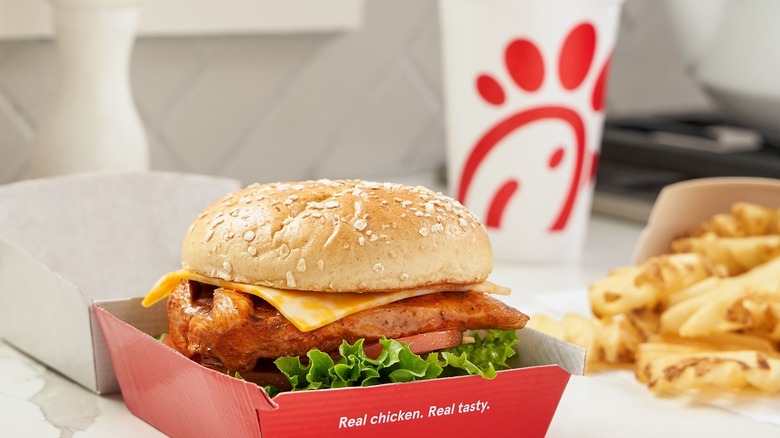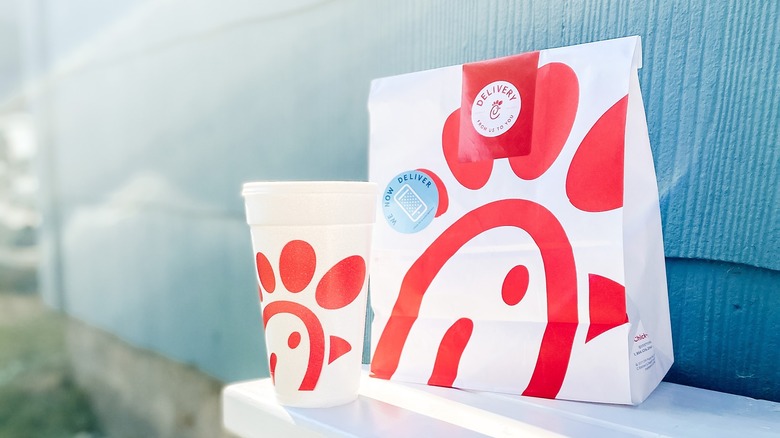The Disturbing Reason Behind This Major Chick-Fil-A Lawsuit
Chick-Fil-A may have ridiculously long lines in its drive-thru for its chicken sandwiches and people may have cravings for that Chick-Fil-A special sauce and the fast-food chain may have scored the title of America's Favorite Restaurant for five years in a row, but it has certainly also had its fair share of controversy over the last 10 years or more. Labeled as an anti-LGBTQ company for its alleged donations to anti-gay organizations, Chick-Fil-A attempted to turn this view around by announcing they would stop supporting several charities that were known to be anti-LGBTQ in 2019, per Yahoo. This didn't stop CEO Dan Cathy from expressing his views opposing gay marriage, however, but it seems that people just like the chicken.
According to chief strategy officer, Thomas Ordahl, of "brand consulting firm Landor" that the fast-food chain was a "paradox" because despite the discordant views of Dan Cathy, it treats its employees well making it "socially advanced" in comparison to many other similar chains. Now, a new issue has seen the chicken restaurant go from the frying vat and into the fire, and may violate "one of the only federal privacy laws in the United States," per Gizmodo.
The lawsuit has to do with privacy
If you've ever had a private conversation about something — say ice cream – and suddenly you see ads for ice cream popping up on your social media feed, you may have wondered what device is listening in. According to Norton, your devices such as your phone and Alexa are legally listening to you. It's their job to do so. In the same way, many websites have code that collects data about a user's viewing habits. Embedded code snippets can give essential marketing information to companies to determine the most popular demographics, target markets, how long people are spending on sites, what location they're in, and so on. This is all legal ground at a federal level, per The New York Times.
However, according to Gizmodo, a law that came into being in 1988 known as the "Video Privacy Protection Act (VPPA)" prohibits companies from collecting information on your viewing habits. This means that the videos on the Chick-Fil-A website evergreenhills.com that collect viewer information and provide it to Meta are possibly in violation of this law. While it doesn't collect personal information such as names and addresses, it is able to collect enough information that can provide targeted ads on social media.
This particular lawsuit, which was filed Sunday, could be the gateway to similar legal issues for other websites that also show videos and collect information from viewers, per Gizmodo.

